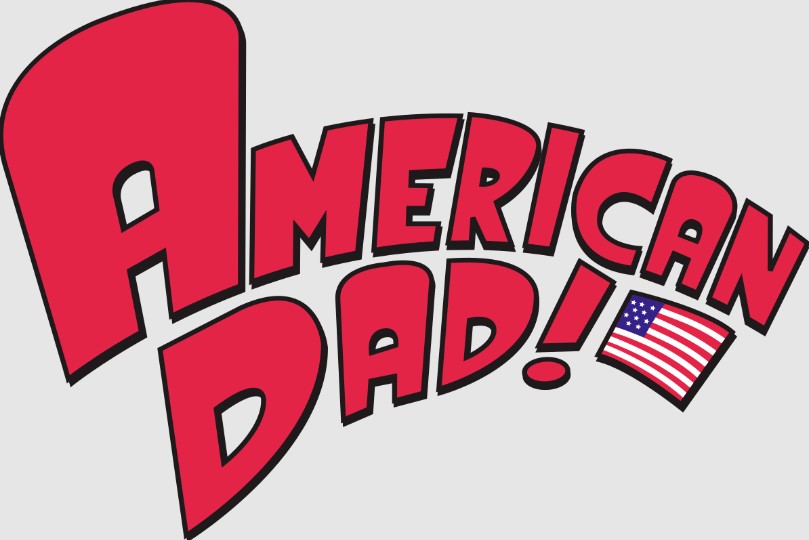American Dad! has been a staple in the world of animated television since its debut in 2005. Blending satire, political commentary, and humor, the show has made an indelible mark on pop culture. So, who are the creative masterminds behind this extraordinary series? Let's explore the creators, the development process, and the show's lasting impact.
The Birth of American Dad!: A Post-9/11 Political Landscape
The concept for American Dad! was born in the early 2000s, a time when political discourse in the United States was highly charged. Seth MacFarlane, the mind behind Family Guy, sought to create a series that would address this political climate. The show’s creation was heavily influenced by the national security concerns and cultural shifts in the post-9/11 era. MacFarlane envisioned American Dad! as a platform for exploring American politics through the lens of a conservative protagonist, Stan Smith, and his eccentric family.
The Creative Team: A Collaboration of Talented Minds
While Seth MacFarlane is often credited as the primary creator, American Dad! was a collaboration between multiple brilliant minds:
- Seth MacFarlane: MacFarlane not only conceived the show but also voiced some of its most iconic characters, including Stan Smith and Roger the alien. His role extended to shaping the show's humor and political satire.
- Mike Barker: With a background in political science, Barker added depth to the show’s political commentary. His understanding of government policies enriched the satire, making the episodes more than just a comedic take on politics.
- Matt Weitzman: As a seasoned comedy writer, Weitzman played a crucial role in developing the show’s humor and pacing. His expertise ensured that the comedy remained sharp while still addressing deeper societal and political issues.
Character Design: A Satirical Take on American Society
The characters of American Dad! were designed to reflect various aspects of American culture and politics:
- Stan Smith: The conservative patriarch, Stan, often finds himself in humorous predicaments as his extreme political views clash with real-world scenarios.
- Francine Smith: Initially a stereotypical housewife, Francine’s character has evolved, challenging traditional gender roles while adding depth to family dynamics.
- Hayley Smith: As the liberal foil to her father, Hayley engages in ideological battles with Stan, representing the generational and political divide.
- Roger: The flamboyant alien, Roger, offers a satirical look at human behavior, often highlighting societal absurdities.
- Klaus: A German-turned-goldfish, Klaus provides an outsider's perspective on American culture, further enriching the show’s comedic layers.
The Development Process: Refining Satire and Storytelling
American Dad! began with a strong focus on political satire, but over time, the creators balanced this with character-driven storytelling. Early drafts of the show leaned heavily on political parody, but the team soon realized that they needed to make the characters relatable for a broader appeal. By integrating personal and family dynamics, the show became more emotionally engaging while retaining its sharp political edge.
The creative process involved numerous iterations, allowing the team to fine-tune the mix of humor and social commentary. The result is a show that is both timely and emotionally resonant, addressing real-world issues while keeping audiences entertained.
Production and Innovation: Animation, Writing, and Voice Acting
American Dad! adopted a unique animation style distinct from Family Guy. This style featured more realistic character proportions and a more grounded aesthetic, which allowed the show's fantastical elements—like Roger’s constant disguises and absurd storylines—to feel more believable.
The writing process was highly collaborative, with a fast-paced approach to keep up with current events. The voice cast, including Wendy Schaal (Francine), Scott Grimes (Steve), and Rachael MacFarlane (Hayley), played a pivotal role in bringing the characters to life. At the same time, guest stars like Patrick Stewart (Avery Bullock) added star power to the ensemble.
Expanding the Scope: Themes and Social Commentary
While the show started as a political satire focused on post-9/11 America, it has since expanded to cover a wide range of themes, including:
- Government Surveillance: The show often satirizes issues like government monitoring, reflecting real-world privacy concerns.
- Immigration: Episodes tackling immigration policies provide a humorous yet thought-provoking critique of U.S. border control debates.
- Race and Ethnicity: Through satire, American Dad! explores racial dynamics, breaking down stereotypes and societal constructs.
- Environmentalism: Climate change and environmental concerns are also touched upon, adding layers of relevance to the show’s broader societal commentary.
Legacy and Impact: American Dad! in Popular Culture
American Dad! has had a lasting influence on adult animation, paving the way for shows that blend political satire with family-centered narratives. Its success encouraged networks to invest in unconventional animated projects that go beyond simple comedy, addressing complex issues with humor.
The show has received critical praise for its willingness to tackle controversial topics, earning multiple nominations, including Annie Awards and Emmys. Beyond its accolades, American Dad! has cultivated a loyal fanbase that actively engages with the show’s themes, creating fan art, discussions, and theories that keep the series relevant even after nearly two decades.
Conclusion: A Show That Stands the Test of Time
As American Dad! continues to evolve, it remains a vital part of the animated television landscape. Its unique blend of political satire, character development, and comedic storytelling has ensured its place in TV history. By tackling real-world issues with humor and heart, American Dad! continues to resonate with audiences, both in the U.S. and abroad.






Comments